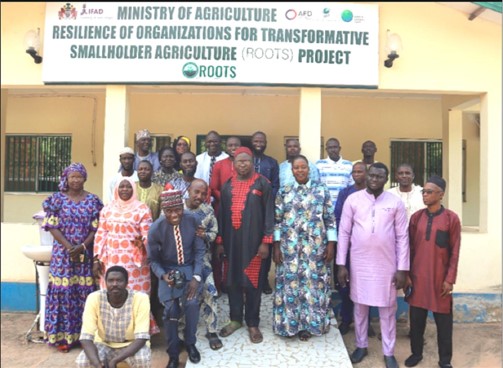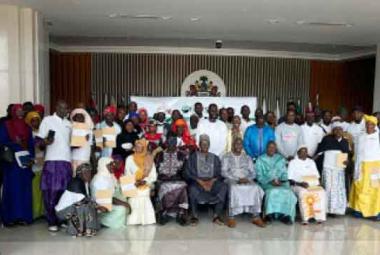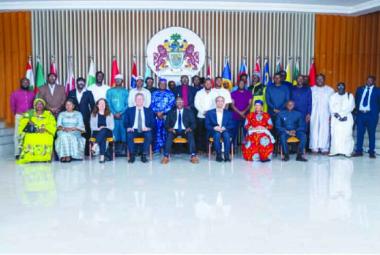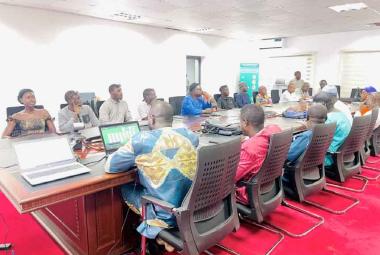By Lamin Kujabi
The National Agriculture Research Institute (NARI), says it has had stakeholders’ consultations, in particular between the Research Institute and other line entities under the Ministry of Agriculture (Department of Agriculture, National Seeds Secretariat) following the introduction of a Republic of Korean (ROK) rice variety in the country recently, in order to work out the strategy to distribute and maximize production.
The Korean government through its ambassador to The Gambia has recently been working with The Gambia government in support of the country’s drive towards rice self-sufficiency. The ambassador made the announcement of the introduction of the rice variety in a recent visit to State House.
In an interview with Gambia Daily at his office in Brikama, NARI Director Mr. Demba Jallow confirmed the arrival of one ton of certified Korean rice seeds called ISRIS 7 rice, which is a lowland irrigated variety.
“We had a meeting in Sapu, Central River Region, where we discussed the modality of increasing rice seeds so that we can have more certified seeds to be distributed to farmers,” he affirmed.
He informed that they had also invited some seed growers, especially from Central River Region North and South, who all stated the amount they would like to cultivate.
The director informed that Mira Farm declared that they can cultivate about two hectares; Marou farm promised to cultivate two hectares, SMC promised to cultivate one hectare while four farmer groups promised to cultivate eight hectares and NARI and NSS to grow one hectare.
He revealed that the rice variety can produce up to seven tons per hectare.
Mr Jallow underscored the importance of private sector involvement in rice production in the country.
He however revealed that Muhammed Jah of Qcell has expressed interest and that he has been given one thousand hectares of land in CRR to pilot with this particular rice variety.
He revealed that government is also negotiating to get another ten thousand (10,000) hectares and that two taskforces have been set up: one for the seeds and the other one for technical activities – a land taskforce to negotiate land onbehalf of the government for Qgroup.
Mr Jallow further remarked: “I know not everybody can go for farming, but we can identify people who can do it. People like Muhammed Jah, Marou Farm and other private sector businesses and individuals with strong financial muscles are being involved and government is ready to support. We have been looking for this kind of opportunity for a very long time”.
He went on to note that if the country is food self-sufficient and “we do not import rice, our reserve will be healthy and the foreign currency will remain here; which will help the other sectors and the economy at large”.
The director indicated that with the Korean collaboration, he is very much hopeful “because they are serious people and they are ready to help”.







